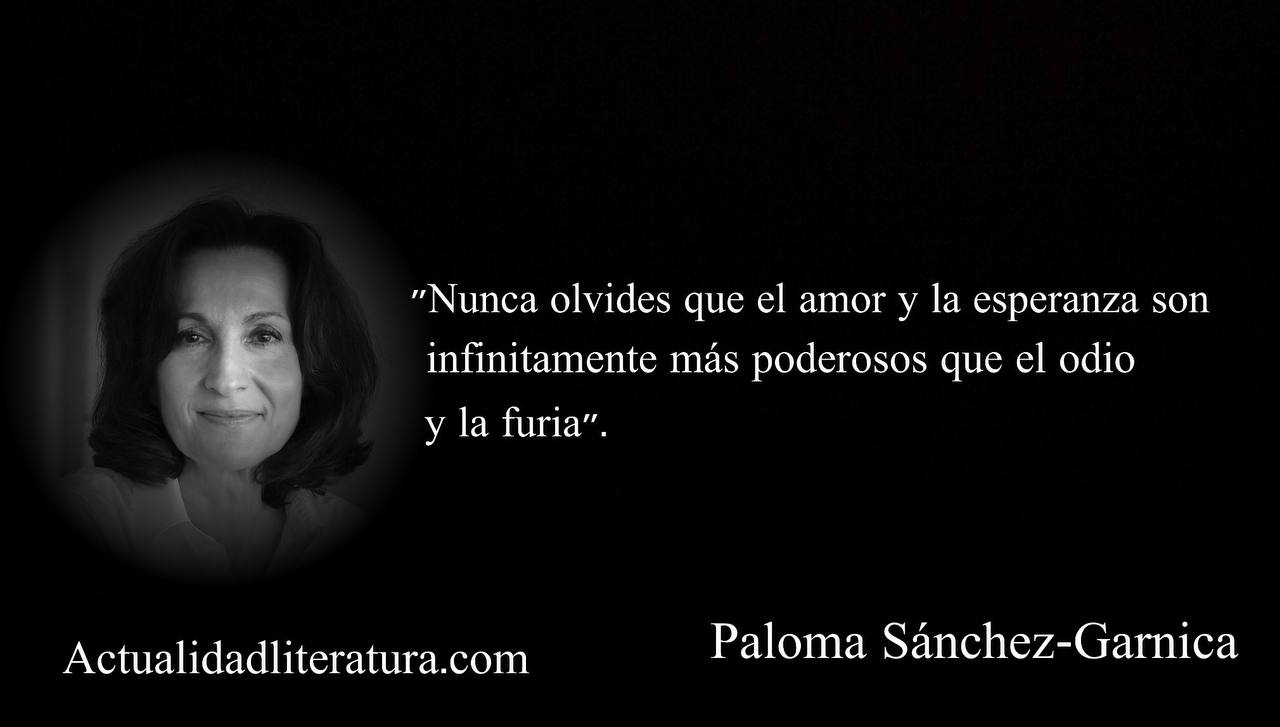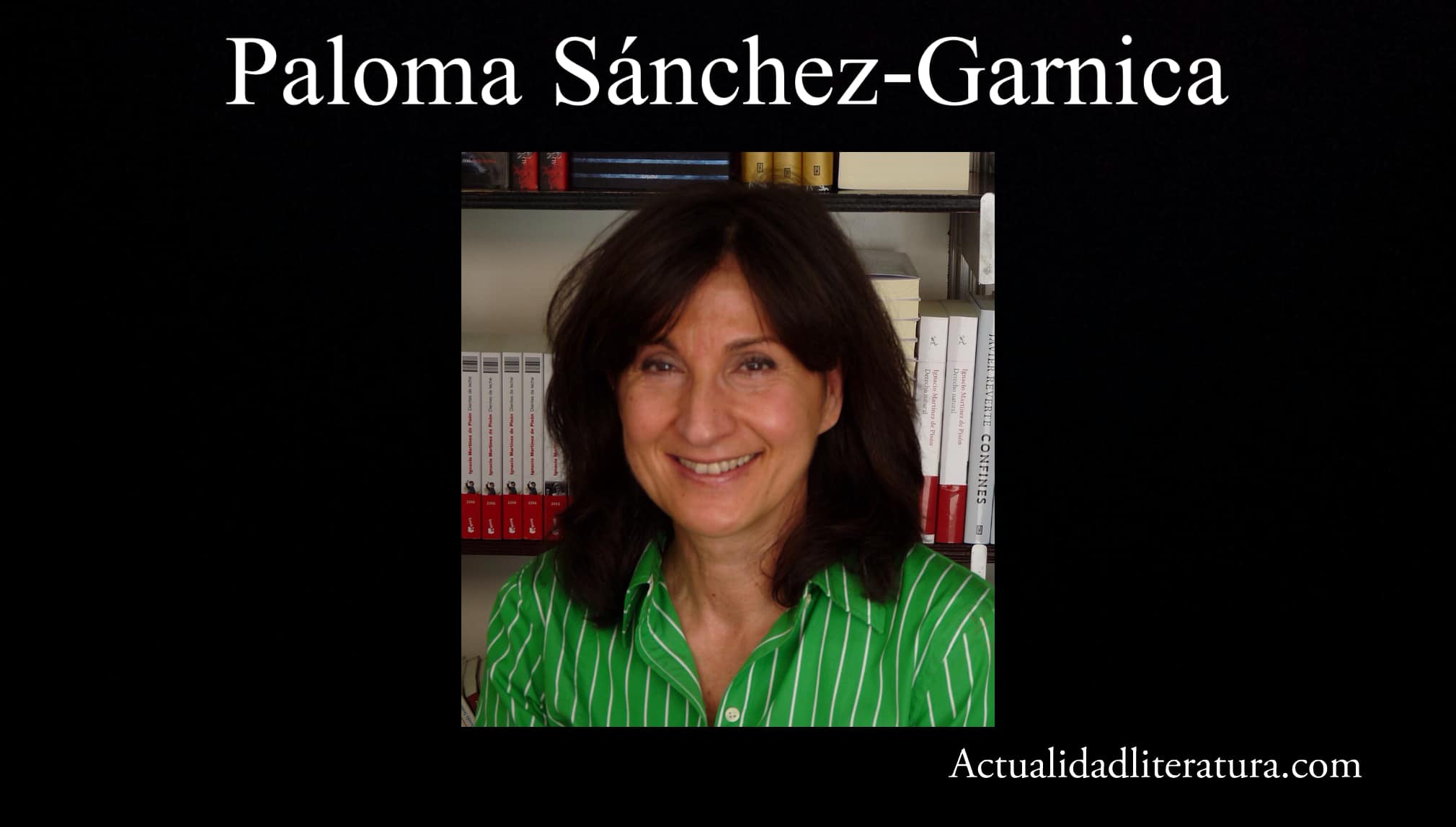
Phrase of Paloma Sánchez Garnica
Paloma Sánchez-Garnica is a writer who has made a name for herself among the great authors of Spanish narrative of the new millennium. Such notoriety of hers is the product of dynamic plots wrapped in a certain aura of mystery and linked to historical events of the XNUMXth century. All these features mentioned are very palpable in The last days in Berlin, shortlisted novel for the Planeta Prize 2021.
Another inevitable characteristic in the narrations of the writer from Madrid is the excellent construction of characters endowed with humanity and psychological depth. In this case, Yuri Santacruz, a Spanish-Russian citizen who works at the Spanish embassy in the capital of Nazi Germany, instantly catches the readers' attention.
Analysis of The last days in Berlin (2021)
Some of the historical events alluded to in the novel
- Russian Revolution (1917) and the civil war between Bolsheviks and counterrevolutionaries (1918 – 1920);
- Hitler's rise to power in Nazi Germany (1932-1934);
- Kristallnacht, The night of broken glass (1938);
- Outbreak of World War II (1939);
- Mass rapes of women during the siege of Berlin (1945).
Conception of the novel
In an interview granted to UNIR (February 2022), Paloma Sánchez-Garnica explained that the ideas for her eighth novel arose from curiosity. Despite her vast academic knowledge, she felt the need to better understand the period explored in The last days in Berlin. Specifically, on this point his words were as follows:
"I was curious to understand a certain moment in history, how human beings like us, ordinary people with ordinary lives, managed their lives in that situation, with prejudices and with an ideology”. For this reason, the writer from Madrid read an enormous number of personal diaries, reviews and documents of the time that his novel deals with.
The intrastories and the construction of the characters
The last days in Berlin It is basically one of love and friendship that occurred in the midst of the most momentous war conflict of the XNUMXth century. In this context, all human relationships were affected, but hope ends up being more important than hatred and anger. All this without losing an iota of the historical rigor characteristic of the Spanish writer.
In the words of Sánchez-Garnica, the novel “is an exclusive dialogue with each of the characters and you make it yours —in reference to the reader— according to your personal circumstances”. Likewise, the writer believes that her protagonist has been liked by the public due to her common sense and her ability to maintain her moral principles even in the most difficult situations.
The silenced victims
The development of the book exposes many of the bloodiest faces of the historical struggle. To begin with, in World War II there was no respect for civilians, who, apart from the bombing, went hungry and suffered torture. A very representative example is that of the Berlin refugees who had to go collect water from public fountains in the middle of the siege.
Another shocking atrocity was the humiliating and inhumane treatment given to women, converted into spoils of war by the occupying armies. This barbarism was perpetrated first by German troops in Russia and then - in revenge - by Russian fighters in Germany. In this regard, the Spanish author declared the following:
"The women had to shut up, silence their tragedy, to receive those defeated men, humiliated… to avoid being rejected and to avoid being embarrassed before them.”
Summary of The Last Days in Berlin
Initial approach
From the outset, the two antagonistic political sides that caused the catastrophe are palpable in the narrative: Nazi national-socialism and Stalin's communism. It was January 1933 when Hitler was appointed Chancellor of Germany.. Meanwhile, the main characters appear entangled in a love triangle of a man with two women.
Then, the action goes back to the year 1921, in the city of Saint Petersburg. Yuri Santacruz grew up there, son of a Spanish diplomat and a Russian woman from a wealthy family that was harmed by the collectivist vision of the Bolsheviks. So the Russian bourgeoisie not only lost their material goods, they were also stripped of their rights and forced to flee.
Yuri's goal
Veronica —the protagonist's mother— and her youngest son were unable to board the train that would allow them to leave Russian territory. For this reason, family reunification would become the reason for life for Yuri and he did not hesitate to accept a job at the Spanish embassy in Berlin. In the Berlin capital he would be under the tutelage of Eric Villanueva, the secretary of the delegation.
Also, in Berlin Yuri accidentally met Claudia Kaller (he would later find out that she was the wife of a high-ranking SS officer). Subsequently, Santacruz hooked up with Krista, a fascinating woman with a medical degree. who was fired after the injustices committed against her Jewish colleagues. In this way the love triangle was formed.
The stages
Although Berlin is the main location of the novel, at times the story moves to Moscow and shows the terrifying Gulags. Eventually, Yuri's life was left hanging in the balance as he desperately searched for his mother and to his younger brother in Russia. Towards the end of the book, Switzerland emerges as a place where hope could be reborn.
As the events unfold, the defeat of Germany is exposed from the point of view of German women and of the subdued survivors. Thus, the set of miseries and calamities make it clear at all times that authoritarianism is a lethal cancer for societies.
About the author

Paloma Sanchez-Garnica
Paloma Sánchez-Garnica was born in Madrid, Spain, on April 1, 1962. Before devoting herself full-time to writing, she worked for many years as a lawyer. In fact, She has a degree in Law and Geography and History. The latter is very evident in his mastery of topics related to Spanish and European historical memory.
However, the Madrilenian had to wait until a mature age to be able to fulfill the dream of dedicating herself to her greatest passion: writing. Finally, In 2006, the publishing house Planeta published his debut feature, The great arcanum. In the following years, the launches of The east breeze (2009) The soul of the stones (2010) and The three wounds (2012)
Consecration
Paloma Sánchez-Garnica's first four books garnered positive reviews from critics, notable editorial numbers, and good reception from the public. Of course, the success of The sonata of silence (2012) marked a turning point in the career of the writer Iberian when it was adapted to the small screen by TVE. Nine episodes of this series were broadcast in total.
In 2016, the writer from Madrid published My memory is stronger than your forgetfulness, winning novel of the Fernando Lara Prize. The successes continued with the release of Sofia's suspicion (2019), whose story shows the vicissitudes of late Francoist Spain and intimate details of the end of the Cold War in Berlin.
